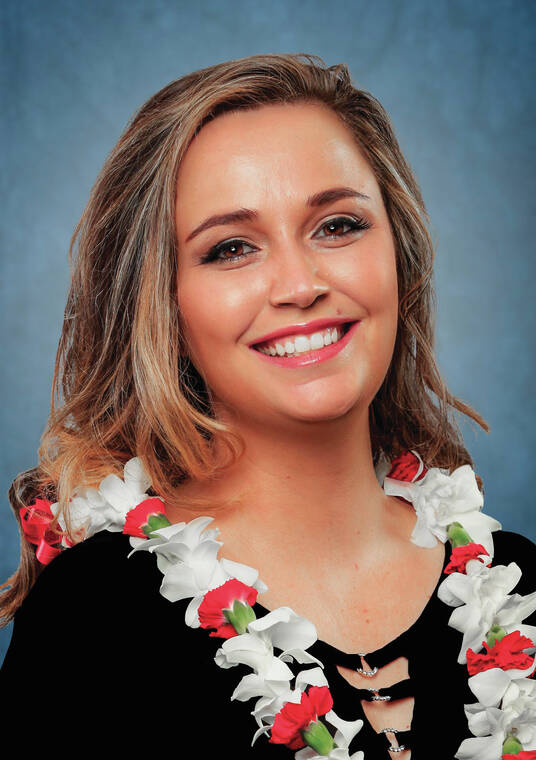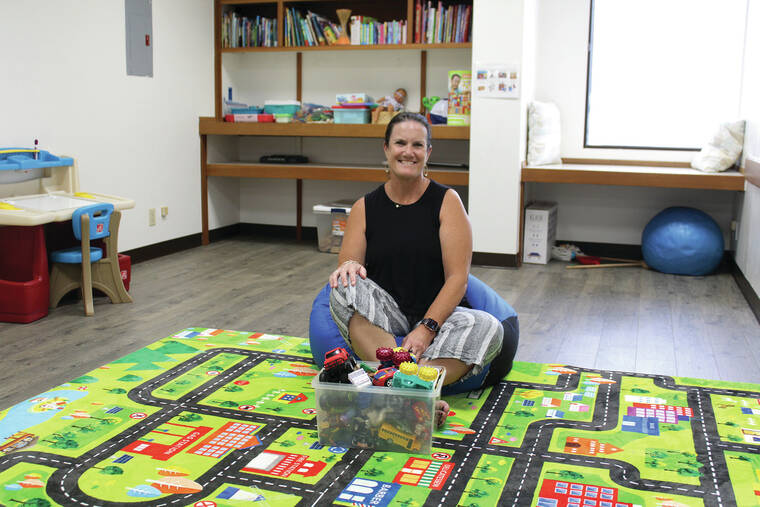A new center opened in Kailua-Kona to provide therapists to local keiki with autism.
The Ho‘okele ABA Center opened in March and offers applied behavioral analysis, or ABA therapy, an insurance-funded treatment for those with Autism Spectrum Disorder.
“Usually ABA is done at home, where you work with children and family,” said Dustin Platter, owner of Platter Behavioral Consulting, who oversees the center. “But now, this center allows us to do real specific work and treatment with children one-on-one and in a group setting.”
The 1,100-square-foot facility features two treatment rooms designed for individual work, along with a main room where kids can interact with one another.
“We’ve seen a lot of children who maybe wouldn’t have naturally interacted with each other be able to,” said Shauna Paul, a board certified behavior analyst who serves as director of the center. “That’s been a definite benefit.”
The center has 11 new registered behavioral technicians, or RBTs, who administer the ABA therapy, and nearly all of them were recruited on-island.
“Surprisingly, all you need is a high school diploma or a GED, and a lot of the training programs are free now,” said Jessica McCullum, founder of the nonprofit Autism Moms of Kona. “A lot of people that want to be in education or be involved with children don’t know about the career opportunities outside of the special needs classroom.”
Autism Moms of Kona helped provide some of the funding for technicians completing their training.
“We already provide a bonus after about three weeks of work, or 100 hours, but Autism Moms of Kona doubled that,” Platter said. “There’s a 40-hour training course that can be done online with our supervision, and then there’s a competency assessment which we do in-person.” ABA therapy is a unique process specifically designed to help children with autism and offers a scientific approach to behavioral issues.
“There is no other therapy or treatment that Medicare or other insurance companies will reimburse for treating autism,” Platter said. “We do a very deep dive into the functions of behavior.”
This can range from complications with speech to tantrums and other disruptions.
“When you have difficulty communicating and difficulty with social interaction, tantrum behavior is pretty common,” Platter said. “So we determine the function of that tantrum behavior, and then we help the child to learn a new way of getting what they want without having to expend so much energy.”
McCullum said the therapy has been imperative for her daughter, Ava, who has done well with the change in setting the center offers.
“The traditional model was to try to take an autistic individual, call them disabled, and then force them to fit into a neurotypical world by changing who they are,” McCullum said. “But with the new ABA culture, the therapist and the team really create a culture of inclusion and accommodation, and that’s where we really find a lot of help and support from ABA therapists. It’s about when to intervene when necessary.”
During the novel coronavirus pandemic, getting a therapist was especially difficult for McCullum.
“Even though insurance authorized her therapy, no one was available,” McCullum said. “And the turnover was really high. Seventy-five percent of the time, Ava had between zero and three hours a week of therapy, even though we had the insurance coverage authorized for nine.”
To accommodate parents, the center also secured liability insurance to allow therapists to transport children between the center and their homes depending on the care that’s needed.
“That’s been helpful for parents, and for us,” Platter said. “Then we can do some work at home, and then bring them to the clinic and back.”
The facility has about 20 clients so far, and those interested in utilizing it are encouraged to reach out to Platter at info@platterbehavioral.com
“The plans are to hopefully have a bunch of younger clientele that are maybe not being diagnosed right away, and be able to target them with early intervention,” Paul said. “I feel very blessed to bring this opportunity to the folks of the Big Island, and help reach as many people as we can to get the word out that help is available, and they’re not alone.”
Email Grant Phillips at gphillips@hawaiitribune-herald.com.


